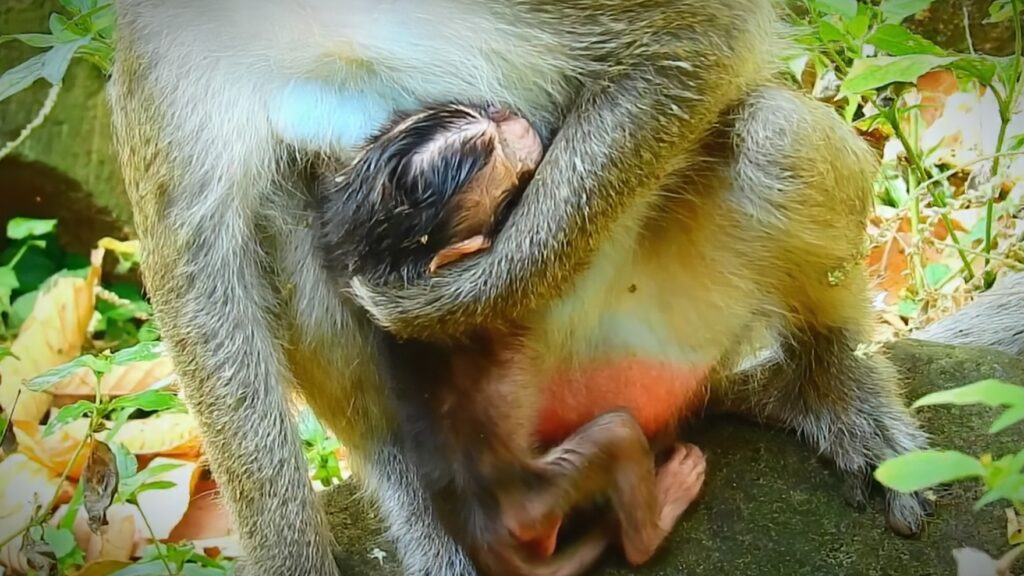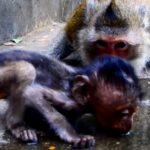In the wild, a mother’s milk is a newborn’s lifeline, providing essential nutrients and antibodies necessary for survival. However, when a mother monkey experiences a milk shortage, her infant faces a desperate and life-threatening situation. This heartbreaking reality is not uncommon in primate populations, where environmental factors, health issues, and social dynamics can impact a mother’s ability to nurse her baby.
The Importance of Maternal Milk
For newborn monkeys, maternal milk is their primary source of sustenance during the early stages of life. It provides not only the necessary nutrients but also immune support that helps them fend off infections and diseases. A mother’s milk is uniquely designed to cater to the specific needs of her offspring, making it irreplaceable in the crucial first months of life. When a mother monkey is unable to produce sufficient milk, the consequences can be dire.
Causes of Milk Shortage
Several factors can lead to a mother monkey’s inability to produce enough milk. Malnutrition is a leading cause, especially in environments where food sources are scarce due to deforestation, climate change, or competition for resources. If a mother is not consuming enough food, her body may struggle to produce sufficient milk for her baby.
Stress is another significant factor. In primate groups, social hierarchy plays a crucial role, and lower-ranking females may experience high levels of stress due to aggression from dominant individuals. This stress can disrupt hormonal balances and lead to reduced milk production.
Additionally, health problems such as infections, dehydration, or hormonal imbalances can also affect lactation. In some cases, first-time mothers may struggle with milk production due to inexperience or physiological challenges.
The Struggles of a Newborn Monkey
For a newborn monkey, the absence of adequate milk leads to malnutrition, weakness, and a weakened immune system. Unlike human infants, who may have access to alternative food sources, a newborn monkey is entirely dependent on its mother’s milk for survival. Without it, the infant’s chances of survival diminish significantly.
In some cases, other females in the troop, such as grandmothers or close relatives, may step in to help nurse the baby. This is known as alloparenting, a behavior observed in some primate species where other adult females assist in the care of the young. However, this is not always a reliable solution, as not all members of the group may be willing or able to share their milk.
Conservation and Intervention Efforts
In controlled environments such as wildlife sanctuaries or research centers, intervention can sometimes save the life of an infant monkey facing malnutrition. Caregivers may provide supplemental feeding with specially formulated milk to ensure the newborn receives the necessary nutrients. In some cases, orphaned or malnourished monkeys may be hand-raised by wildlife experts until they are strong enough to survive on their own.
In the wild, however, survival is much more uncertain. Conservation efforts aimed at protecting natural habitats, reducing human interference, and ensuring sustainable food sources can help reduce instances of maternal malnutrition, ultimately supporting healthier primate populations.

The struggle of a newborn monkey facing starvation due to a mother’s milk shortage is a reminder of the delicate balance of life in the animal kingdom. Whether through conservation efforts or natural social bonds within primate groups, every effort to support these vulnerable creatures contributes to the survival of their species.

